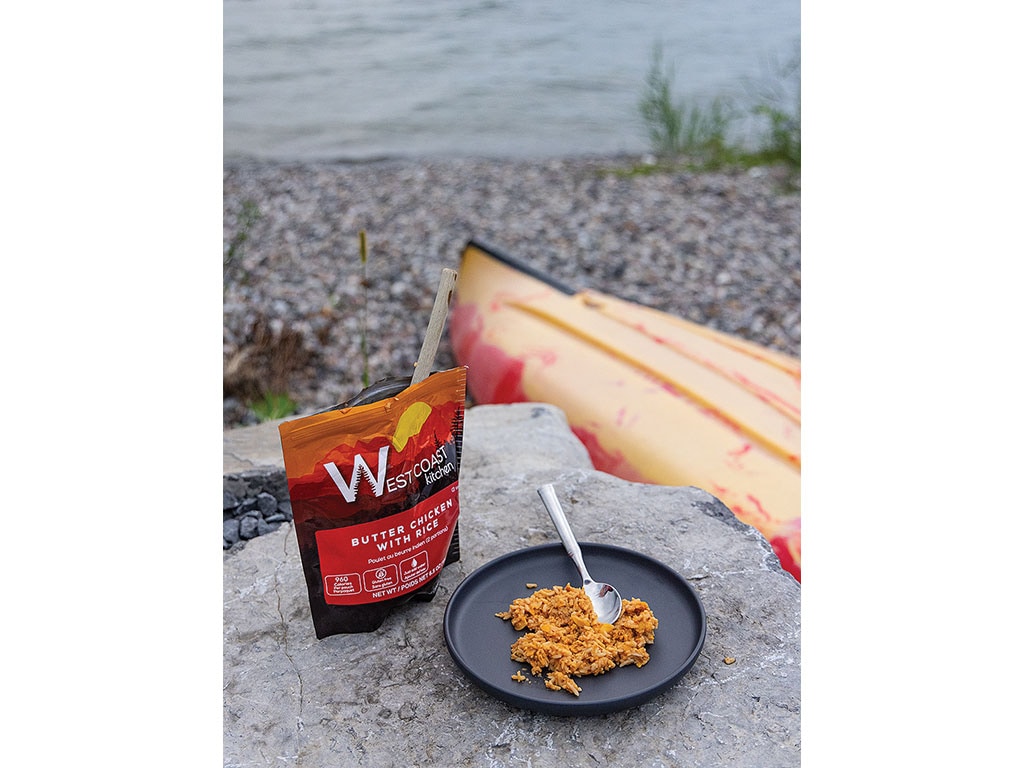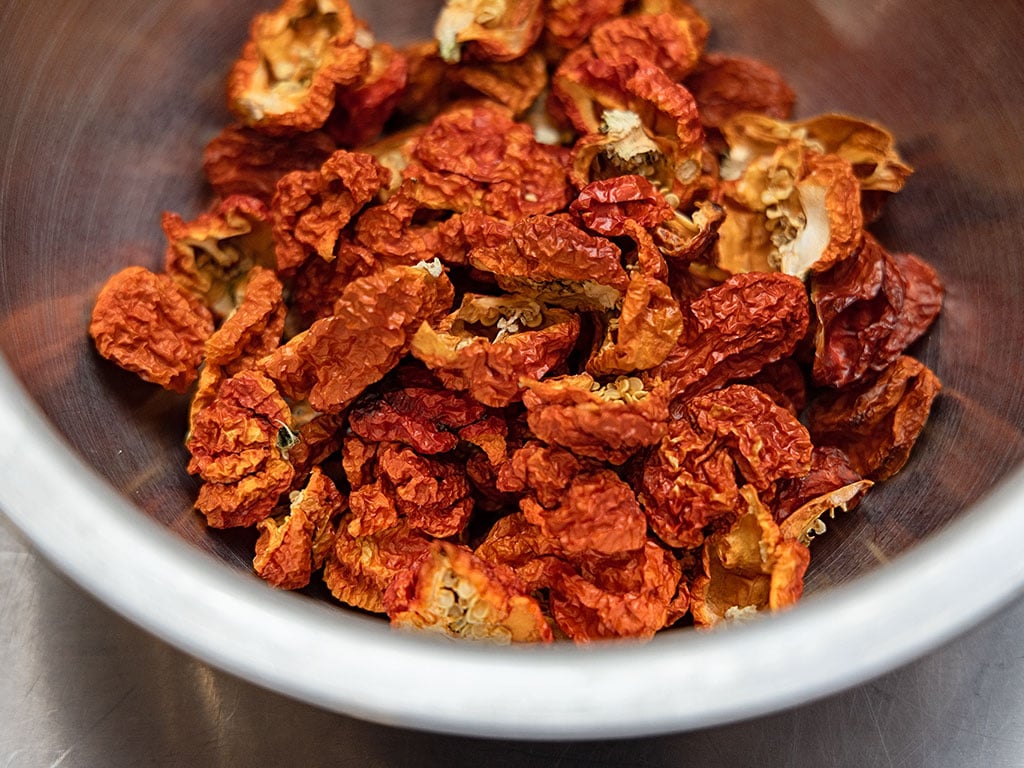Agriculture, Specialty/Niche January 01, 2025
Freeze-Dried Success
Small Vancouver Island farm goes gourmet with freeze-dried meals.
by Lorne McClinton
Penny de Waal just wanted her husband Shani Farboud to go wilderness hiking with her. But the avid hiker's first attempts in 2016 didn't go well. Farboud, an award-winning chef, drew a firm line in the sand. He refused to go on hikes if it meant surviving on a diet of instant noodles. But de Waal wasn't ready to give up and as the old saying goes, necessity is the mother of invention.
"We sat on the beach on Nootka Trail [on the west coast of Vancouver Island, British Columbia] in the middle of nowhere and discussed what we could do to be able to hike together," de Waal says. "We started researching and thought freeze drying food might work. We bought a little home-scale freeze dryer and Shani just started cooking and freeze drying all the food he loves."
Above. Their butter chicken entree is their most popular. All chilis and apples used as ingredients in their meals are grown on their farm.
Weight matters. Every kilogram in your backpack matters when you hike in the back country. Since water is heavy—a liter of water weighs a kilogram, or 2.2 pounds—most hikers survive on dry foods like rice, beans, and freeze-dried, ready-to-eat meals. Traditionally these were something you ate for the energy needed for your trek, but you had to be good and hungry to enjoy one. That's why de Waal and Farboud were pleasantly surprised to find that even his first attempts tasted pretty good.
"We thought that maybe there was something in the freeze-drying process that made them so nasty but it's not," de Waal says. "We found that what you put in is what you get out. If you put horrible ingredients in, they'll still be horrible when they come out."
His results were so delicious they wondered if others might like them, too. The couple, owners of Fat Chili Farm in Cobble Hill, BC, had long been a fixture at the Duncan (BC) Farmers' Market selling their line of hot sauces made from the peppers grown on their farm. So, it was an obvious place to introduce their West Coast Kitchen line of freeze-dried meals in 2019.
Demand for their meals has exploded locally and across Canada. They're popular with hikers, hunters, and firefighters. They also sell a lot for 72-hour emergency kits, too. They estimate that 75% of their income now comes from freeze-dried foods.
Currently they sell 14 entrees in both single and double portions, two breakfasts, and six snacks. A full list can be found on their website, westcoastkitchen.ca. Any chilis and apples used in them are grown on their farm. Preparing them is fast and simple, just pour the required amount of boiling water into the zip-locked foil bag it comes in, give it a stir, then reseal it, and wait a few minutes. You can eat it right out of the bag if you wish.
"Our butter chicken with rice is our most popular one and has been right from the beginning," de Waal says. "Our newest one, the West Coaster, a pasta dish with cream cheese, bacon, capers, spring onions, and Parmesan cheese is very popular, too. Last year we cracked the breakfast gap with one that has pork sausage, hash browns, red pepper, spinach, onion, garlic, and egg. We called it Trailblazer because breakfasts often are found at the top of everyone's list of the most awful ready-to-eat meals."
Launching the business though was very capital intensive. Fortunately, the couple already had a commercial kitchen to make hot sauces. But getting the German manufactured, industrial freeze dryers they required, and finding a refrigeration company with the expertise to get them up and running reliably, was challenging.
"We didn't know what we were getting into," de Waal says. "We had made all these contracts with retailers our first summer, but when they reordered for the second summer, our compressors went down. We weren't able to fill our contracts for six or seven weeks. It was the worst year of my life. I thought it would kill the business but we didn't lose a single retailer. Eventually we solved all the technical problems. I never expected to know so much about vacuum pumps."
De Waal attributes their popularity to creating a quick, great tasting, nutritious line of meals. So, while they sell a lot to hikers, hunters, kayakers, and sailors, she says they've also become popular with busy, single parents and people who just want a quick and easy-to-prepare meal.
"We give you healthy meals that are cheaper and faster than getting pizza delivered," de Waal says. "It's been a great success, but we found out we have created a monster. We're now too busy making hiking food to go hiking anymore." ‡
Read More

AGRICULTURE, FARM OPERATION
Numbers You Should Know
Financial statements make a big difference with lenders and tax preparers.

AGRICULTURE, LIVESTOCK/POULTRY
Beef on the Outskirts
Young Quebec couple builds a thriving freezer beef business at the edge of Montreal's northern suburbs.



